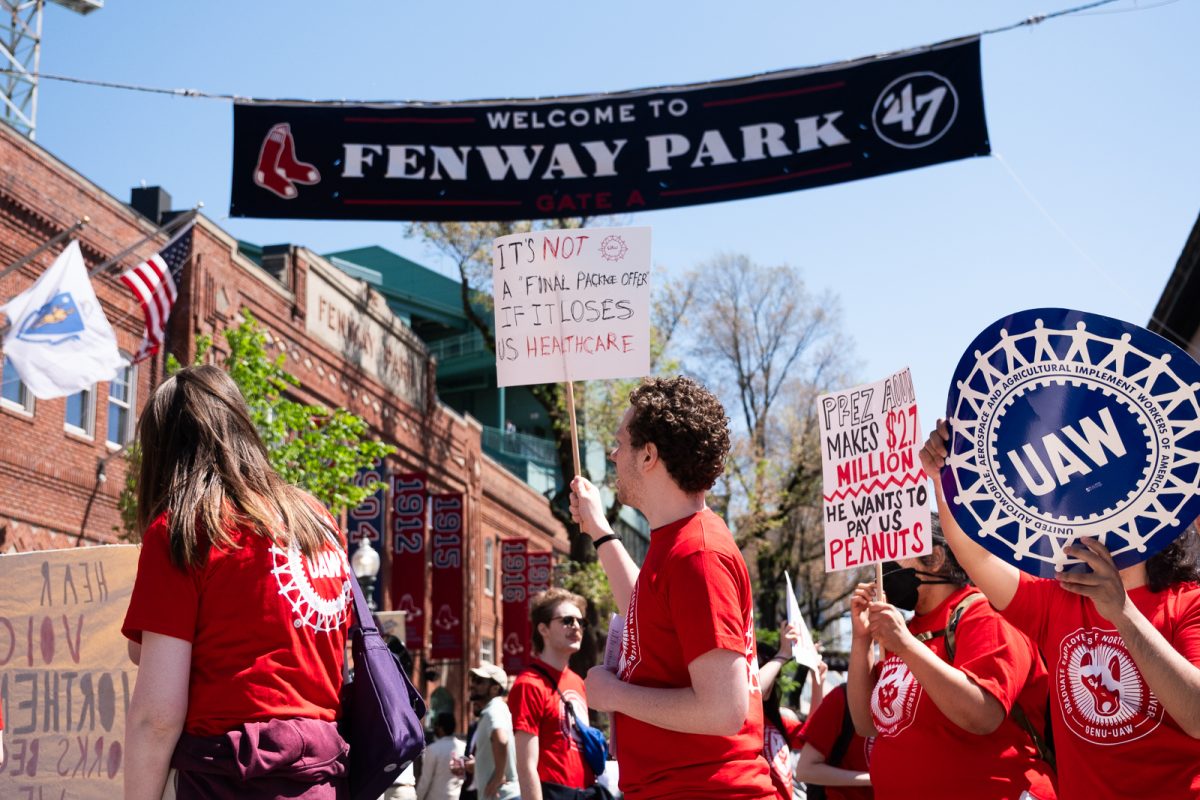By Jeanine Budd
Any college student living in Boston who, in the future, plans to live off-campus with four or more fellow students may have to reconsider. The Boston City Council passed an ordinance Dec. 13 that would make it illegal for more than four students to share a living space. The council voted unanimously to support the restriction that disregards the size of the rental unit. The restriction is now being processed for approval by the Boston Redevelopment Authority. The official behind the ordinance is District 8 Councilor Mike Ross, who said he wants to reduce the number of “shadow campuses” around this college town to limit the effects on long-standing neighborhoods. However, some students said Ross has failed to look at both sides of the issue. “If the apartment is appropriately sized for more people, I don’t think that’s fair,” said Jen Usher, a middler psychology major. “My apartment was converted from a two-person apartment to a three-person apartment and it works just fine.” Ross is reacting to what he has called overcrowding in his district, which includes Mission Hill and parts of Allston and Fenway. At least 11 percent of the Mission Hill population – totaling 1,986 – is college students, according to a 2007 city census. More than half attend Northeastern, according to local media outlets. Greg Vasil, CEO of the Greater Boston Real Estate Board, disagreed with Ross’s proposed solution. “If we take a look at the number of people that can legally be placed in an apartment, they’re going to have 200 square feet per person,” Vasil said. “I think you have a solution right there.” Vasil referred to the Massachusetts State Sanitary Code, which requires that a home have at least 150 square feet of floor space for its first occupant and 100 square feet for each additional occupant. Also, 70 square feet are required for the first occupant’s bedroom, and 50 square feet for each additional occupant’s bedroom. In total, each of the occupants should be receiving at least 150 sq. feet of floor space if they’re renting property as a group, according to the Massachusetts Department of Public Health Johanna Sena, director of community relations at Ross’s office, said this law used to be something that was more regularly enforced. But that stopped, she said, because of the Sang Vo vs. City of Boston case in 2003 when the regulations were stymied. “The inspectional services used to enforce the law,” Sena said, “but they came and inspected a unit that had many tenants living in it that were all immigrants of low income, who due to income difficulties had no choice but to live like that.” Following this discovery, the city’s inspectional services were sued by three Vietnamese immigrant families who were facing eviction from their apartments for having too many people in their apartments. “The court basically threw it out and said that inspectional services, or the council, needs to take it upon themselves to update the old law,” she said. New rules were needed, she said, to dictate what constitutes a family and how many residents can share a dwelling. Thus, Ross has decided to push for a new ordinance that, while prohibiting college students from renting an apartment with more than a total of four fellow graduates and undergraduates, would have no effect on residents who are not in college. For example, if two college students and three non-students lived at the same location, it would be legal. Sena cited a new trend of out-of-town investors looking at Mission Hill as an investment market as another main reason why Ross is supporting the ordinance. Sena said the high price students are willing to pay for rent, along with the crowded conditions, make it almost impossible for long-term families to compete. “We have landlords turning porches, dining rooms and living rooms into bedrooms, and the students pay $700 or $800 [a month] per person and, depending on how many students are living there, that can add up to a few thousand dollars,” Sena said. “That more than pays the mortgage and leaves the owners with a lot of profit.” Stanley Byers, owner of a triple decker in Mission Hill, said he agreed that there shouldn’t be 10 students living in a 5-bedroom house, but he wondered why the ordinance was so targeted. “If the facility is adequate for five people, there’s no reason that five students shouldn’t be able to live there,” he said. And Usher complained that on-campus housing is also too expensive for some students. “I’m going to live in an apartment for a whole lot less money than a [residence hall] where you can reach out and touch your roommate while you’re sleeping,” Usher said. “To be honest, landlords are going to stuff their apartments with people if it means they’re going to get paid. If four people can pay the rent better than two people, then they’re going to let four people live there.” Usher also said the damage to the neighborhood takes place despite the amount of students on a lease. “Apartment parties have been just as bad as whether two people are living in that house or eight people are living in that house,” she said. “Everyone is going to come to that house if that’s where the party’s going to be.”








